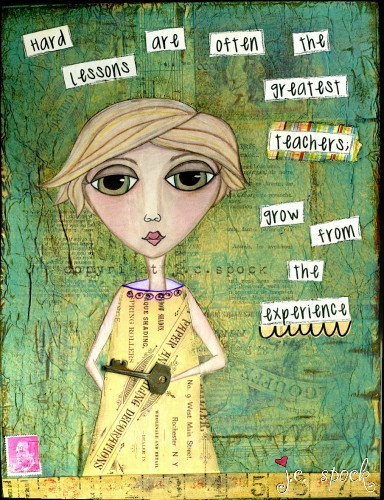Let’s face it: We’ve all made bad decisions. Decisions that are both painful and embarrassing. Because we’ve been programmed with integrity, we relive those bad decisions over and over in our heads. The regret is sometimes too much to bear.
But just how can we learn from these mistakes? Simple. By turning lamentation into reflection. This is an invaluable leadership skill that lets us absorb real insight from our humiliation.
By lamenting over our mistakes, we alleviate the pain associated with them. Generally, we find ways to replace embarrassment and feelings of stupidity by justifying the mistake. If we can find just one logical reason for why we made a mistake, then we feel better.

Unfortunately, most of us don’t channel that reflective process into something productive. Doing this can help us understand the real reason we made the mistake, and discover ways to change so we don’t make the same mistake again.
How can lamentation provide deeper reflection? Follow these three easy steps:
1. Write the mistake down.
Immediately following the mistake, and before you form any justifications. This way you have the ability to see your mistake clearly.
Ask yourself the following questions:
What happened?
What made you think it was a good idea?
What made you realize it was a bad idea?
What was happening around you when you made the mistake?
Were there distractions?
2. Decide how you’ll handle the mistake.
The fastest way to get over feeling bad about a mistake is to use good judgment in order to minimize its impact. Lamenting will cause you to overreact, making the mistake worse. Decide the best action to take after you make the mistake.
Ask yourself the following questions:
How can you right the wrong?
Would a corrective action such as an apology be helpful?
Would the corrective action be genuine or feel forced?
3. Plan how you’ll handle the mistake differently if it happens again.
After you’ve dealt with both the impact of the mistake and your emotional reaction to the mistake, decide what you’ll do differently if you should happen to make the mistake again. This will give you an advantage.
Ask yourself these questions to prepare for future mistakes:
How can you prepare prior to making a decision?
How can you use previous mistake experience when future decisions need to be made?
What logical questions can you ask yourself to help focus on making good decisions?
~~~~~~~~~~~~~
Autumn Tompkins is the head sass-master at ink well copy. She is a skilled copywriter who creates dynamic copy that captures her clients’ expert voices and generates genuine sales, turning maybe’s into most definitely’s.

